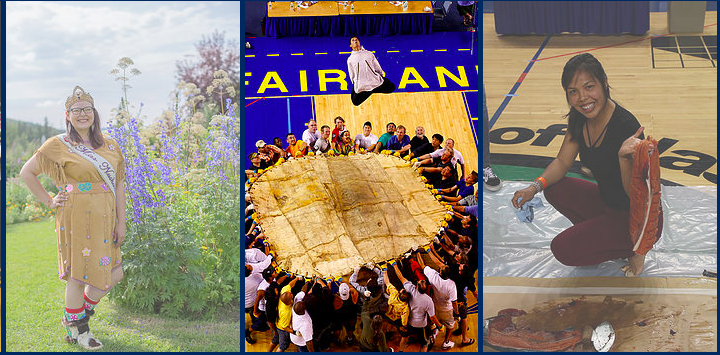
The first World Eskimo Olympics was held in Fairbanks in 1961 drawing contestants and dance teams from Barrow, Unalakleet, Tanana, Fort Yukon, Noorvik and Nome. The event was a big success and has been held annually ever since.
This year, the WEIO took place on July 21 through to the 24, where dozens of athletes were recognized in their prowess over traditional games. There are 19 sports including the ear pull, knuckle hop, bench reach, Alaskan high kick and more.
Four awards are given each year as a tribute for contributions to WEIO. They are the A. E. “Bud” Hagberg Memorial Sportsmanship Athletic Award – chosen by the athletes this award is presented to the competitor exemplifying the spirit of good sportsmanship; the Howard Rock Memorial Outstanding Athlete Award based on a point system and awarded to the best all around athlete; the Frank Whaley Award for Outstanding Contributions is presented to the individual or corporation acknowledging their contributions of time, money and effort and the Olive Anderson Volunteer Award given to an individual or group recognizing outstanding volunteer efforts.
“Survival for the Native people of Alaska has been the name of the games for as long as our elders can recollect. When listening to them tell of their early life, it sometimes seems inconceivable they managed at all. These stories constantly reiterate the need to be disciplined physically as well as mentally, to share, cooperate and hold a reverence for the source which makes it possible to survive in an environment which is severe in every sense of the word. These people lived off what nature provided. They hunted, fished, and gathered plants for food, clothing, and medicinal purposes. In all of these instances they had to be strong and agile, and able to endure beyond normal limits of strength and pain. In winter or summer one had to prepare to be tested at any moment and to fail could easily be the difference between life and death,” reads the WEIO website.








